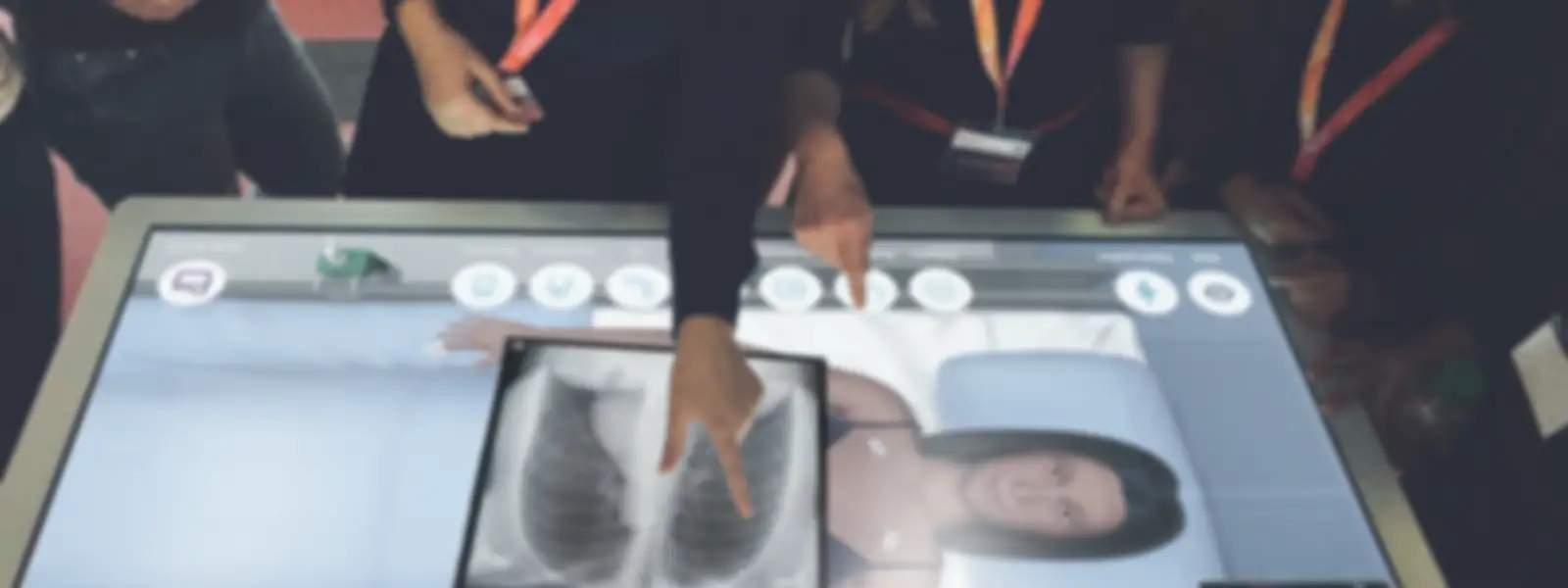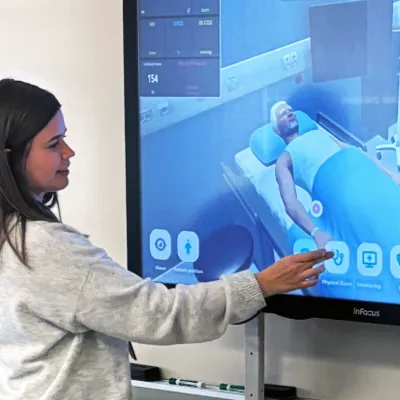How Virtual Patients Enhance Psychological Safety in Learning
Nowadays demand makes integrating technology into healthcare education essential for enhancing learning and ensuring patient safety. Body Interact, a Virtual Patient Simulation (VPS) platform, exemplifies this innovation by offering a dynamic, risk-free environment where learners can refine their clinical skills.
By simulating real-life patient scenarios, the platform enables healthcare students to practice clinical decision-making without the risks associated with real-world patient care.
According to Cook and Triola (2009), VPS enhances learner engagement, strengthens clinical reasoning, and facilitates personalized learning experiences. Unlike traditional clinical training, which relies on the availability of diverse patient cases, VPS provides standardized and repeatable scenarios, ensuring a comprehensive and well-rounded skill set.
This article explores how Body Interact – Virtual Patients fosters a psychologically safe learning environment, drawing insights from recent scientific research.
The Importance of Psychological Safety in Medical Learning
Psychological safety—the confidence to express ideas, ask questions, and acknowledge mistakes without fear of humiliation or punishment—is a crucial element in any educational setting. In healthcare, where decisions can significantly impact patient outcomes, cultivating psychological safety encourages open communication, facilitates learning from mistakes, and fosters continuous improvement.
A study by Edmondson et al. highlights that psychological safety helps learners overcome barriers to education and professional growth, particularly in challenging and high-pressure environments.
How Body Interact Enhances Psychological Safety
1. A Risk-Free Learning Environment
Traditional clinical training often carries the fear of making mistakes that could harm real patients. Body Interact’s virtual environment eliminates this concern by offering a safe, simulated space where learners can experiment, make decisions, and learn from their errors without real-world consequences.
Introducing Virtual Patients in the classroom, not only builds confidence but also encourages critical thinking and resilience, essential traits for future healthcare professionals.
Explore the impact of productive failure in healthcare education at Body Interact blog article on “The Role of Body Interact in Transformative Learning”.
2. Exposure to Diverse Clinical Scenarios
Success in healthcare requires the ability to manage a wide range of health conditions. Body Interact clinical scenario library exposes learners with varied clinical cases that closely mimic real-life interactions. This diversity enhances adaptability, strengthens diagnostic reasoning, and ensures students are well-prepared for unpredictable clinical situations.
3. Immediate Feedback and Self-Paced Learning
Timely feedback is crucial for reinforcing correct decision-making and addressing mistakes. Body Interact delivers instant feedback on clinical decisions, helping learners understand their reasoning and improve in real-time. Additionally, the platform supports self-paced learning, allowing users to tailor their educational journey according to their unique learning styles and schedules.
Research by Rudolph, Raemer, and Simon (2014) highlights the significance of pre-simulation briefings in creating a psychologically safe learning space. These briefings ensure that students feel comfortable making mistakes and learning from them.
4. Encouraging Collaboration and Teamwork
Effective healthcare relies heavily on teamwork and communication. Body Interact fosters collaboration by simulating real-life healthcare team interactions, where learners must work together to solve clinical problems.
This teamwork-based approach creates a supportive and psychologically safe environment where individuals feel comfortable sharing insights, asking for help, and refining their communication skills.
A study by Schmutz and Manser (2013) found that effective teamwork significantly improves clinical performance. VPS facilitates collaborative learning by allowing students to engage in simulated cases alongside virtual teammates or real-time remote peers, strengthening their leadership, problem-solving, and interpersonal skills.
Research-Backed Insights on Psychological Safety
Scientific research underscores the vital role of psychological safety in healthcare education. A study by Edmondson et al. emphasizes that fostering psychological safety helps learners overcome obstacles to education in high-pressure clinical settings.
By providing a judgment-free learning space, Body Interact aligns with these findings, promoting a culture of open communication, continuous learning, and professional growth.
References
1. Cook DA, Triola MM. Virtual patients: a critical literature review and proposed next steps. Med Educ. 2009;43(4):303-11. doi:10.1111/j.1365-2923.2008.03286.x.
2. Issenberg SB, McGaghie WC, Petrusa ER, Lee Gordon D, Scalese RJ. Features and uses of high-fidelity medical simulations that lead to effective learning: a BEME systematic review. Med Teach. 2005;27(1):10-28. doi:10.1080/01421590500046924.
3. Rudolph JW, Raemer DB, Simon R. Establishing psychological safety in simulation: The role of the presimulation briefing. Simul Healthc. 2014;9(6):339-49. doi:10.1097/SIH.0000000000000047.
4. Edmondson AC. Understanding psychological safety in health care and education organizations: A comparative perspective. Res Soc Adm Pharm. 2016;12(3):277-87. doi:10.1016/j.sapharm.2015.07.010.
5. Schmutz JB, Manser T. Do team processes really have an effect on clinical performance? A systematic literature review. Br J Anaesth. 2013;110(4):529-44. doi:10.1093/bja/aes513.









